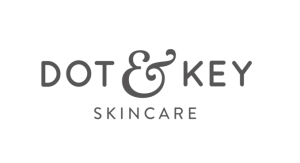Private Label vs. Contract Manufacturing: Which Path to Choose?
In the vibrant World Market, a budding entrepreneur contemplates whether private label or contract manufacturing is the ideal path. This decision goes beyond just a name; it’s a strategic choice crucial for long-term success and brand identity, influencing factors like control, cost, and creativity. The key question to consider is which option aligns best with her business goals and vision.
1. Understanding Private Label and Contract Manufacturing
Navigating the landscape of private label vs contract manufacturing options is crucial for the success and scalability of your brand.
In 2016, Nisha Banerjee, a fashion retail entrepreneur, confronted these very decisions when she embarked on creating her clothing label, weighing the benefits of each option. She wondered whether to go for a private label or contract manufacturing, a dilemma each with its own rewards and challenges.
Private label manufacturing often allows businesses to purchase pre-designed, unbranded products to sell under their own brand names. This option is particularly beneficial for those eager to launch quickly and with fewer resources initially. You can maintain brand autonomy while leveraging existing production efficiencies.
Contract manufacturing, on the other hand, provides the opportunity to design products from scratch, thus tailoring them to specific market demands. Your vision can be brought to life in collaboration with a dedicated manufacturer, offering potentially higher margins and more distinctive product lines for those with creative aspirations and adequate resources.
Ultimately, understanding these pathways can ignite informed choices for entrepreneurs seeking to establish their ventures with solid foundations.

2. Key Differences Between Private Label and Contract Manufacturing
Private label manufacturing involves purchasing finished products that are readily available, permitting an expedited market entry with simpler packaging requirements. You merely rebrand these as your own, making this method time-efficient and resource-light.
Contract manufacturing empowers you with the ownership of customized product development. It requires designing a product, which the manufacturer then produces according to your specifications.
When opting for a private label, startup costs and risks are significantly reduced. There is minimal upfront investment required, making it an attractive option for emerging entrepreneurs.
In contrast, contract manufacturing demands a more substantial initial investment and involvement. However, it grants you a unique product that fosters brand differentiation and scalability.
Working with a private label you rely on the supplier’s manufacturing capabilities, which can save on production costs, but may limit innovation. This approach suits those who prefer simplicity and speed over total customisation.
Conversely, the bespoke nature of contract manufacturing allows you to exert influence over every detail, offering extensive opportunities for customization. For those who envision crafting a distinctive product identity, this route offers unparalleled creative freedom.
3. Pros and Cons: Finding the Best Fit
Here are the pros and cons of private label and contract manufacturing in bullet points:
Private Label
Pros:
- Swift market entry with minimal financial risk.
- Leverages existing production lines and branding resources.
- Ensures a faster market footprint.
- Reduces the need for significant upfront investment.
Cons:
- Diminished control over product distinctiveness and quality.
- Limited ability to innovate or customize products.
- Potential dependency on third-party manufacturers.
Contract Manufacturing
Pros:
- Ability to create products with unique attributes.
- Enhances brand credibility through exclusive innovations.
- Caters to niche market demands.
- Greater control over production processes and quality.
Cons:
- Requires substantial investment and collaboration.
- Longer time to market compared to private labeling.
- More complex operational management and oversight.
These points provide a clear comparison to help guide your decision based on your business ambitions and values.
4. Advantages and Disadvantages of Private Label
Here’s a table outlining the advantages and disadvantages of embarking on a private label journey:
Advantages
- Accelerates market entry and enhances brand presence rapidly.
- Leverages pre-existing manufacturing setups, making the process seamless and efficient.
- Reduces production costs and streamlines processes for swift market penetration.
- Offers flexibility to adapt to market trends without the need for setting up production facilities.
- Maintains agility, making it an attractive choice for businesses aiming to stay nimble.
Disadvantages
- Lack of control over production can hinder product differentiation.
- Potential limitations on innovation and distinctiveness.
- Reliance on third-party facilities may lead to compromises on quality measures.
- Slower responses to specific demands due to dependency on external manufacturers.
- As the brand grows, transitioning to a model with more control may be necessary for sustainability.
This table provides a clear overview of the benefits and challenges associated with private labeling, aiding businesses in making informed strategic decisions.
5. Benefits and Limitations of Contract Manufacturing
Contract manufacturing offers an exceptional opportunity for businesses to leverage existing expertise and production capabilities, thereby enabling rapid market entry without heavy upfront investments.
Here’s a concise table of the benefits and limitations of contract manufacturing:
Benefits
- Cost savings, allowing focus on core competencies.
- Efficient large-scale production with a streamlined workflow.
- Quick adaptation to market demands, fostering resilience and strategic growth.
- Acts as a "stepping stone" for scaling until in-house capabilities are feasible.
Limitations
- Reduced control over the manufacturing process, potentially affecting product quality.
- Slower innovation cycles due to dependency on external partners.
- Requires thorough assessment of partners to ensure brand integrity.
- Potential risks related to intellectual property protection and confidentiality.
This table succinctly captures the key points, providing a clear overview for strategic decision-making.
6. Evaluating Your Business Needs
Determining whether private label or contract manufacturing suits your business hinges on understanding your unique requirements. For businesses in their early stages or those diversifying offerings, private labeling offers a low-risk, efficient entry strategy, allowing for market experimentation with minimal investment.
Conversely, if your vision includes large-scale production with proprietary formulations, contract manufacturing is preferable, offering customized processes and greater control over brand differentiation and quality. Consider your available resources, supply chain dynamics, cost structures, and regulatory compliance to make an informed decision that aligns with your long-term strategic goals, ensuring sustainable and robust growth.

7. Production Capacity Needs and Budget Considerations
To choose between private label and contract manufacturing, assess your current and future production needs. In 2018, Daily Nutrients scaled effectively by aligning production with financial capabilities, demonstrating the importance of matching growth expectations with the right model. Decide if your business requires a scalable framework or an agile setup. Private labeling offers a cost-effective entry to test markets, while contract manufacturing, though requiring higher initial investment, supports larger volumes and unique formulations. A careful evaluation of your capacity and budget will guide you to a strategic choice that accelerates growth.
8. Quality Control and Standards
Quality
In the dynamic contrast between private label and contract manufacturing, quality control is paramount. The decision largely depends on how you wish to manage the rigorous procedures necessary for maintaining quality. Private label vendors typically handle these aspects through established protocols, offering an efficient way to ensure product consistency. This streamlined and predictable approach to quality assurance allows businesses to focus on other strategic areas while maintaining high standards. Understanding the intricate frameworks of quality assurance is essential, as it directly influences brand reputation and customer satisfaction, both critical drivers of success in today’s competitive market.
Standards
Standards play a crucial role in the choice between private label and contract manufacturing, impacting the regulatory landscape your business must navigate. Adhering to industry standards, which vary across regions and products, is essential for compliance and avoiding potential pitfalls. Post-2023 updates have further emphasized the importance of staying current with evolving standards. Whether customizing specific requirements to fit your objectives or aligning with established protocols, maintaining compliance is vital. Robust adherence to standards not only ensures regulatory compliance but also enhances brand credibility and trust among consumers.
9. Making the Right Choice for Your Business
With the expanding landscape of manufacturing options, choosing between private label and contract manufacturing requires a careful evaluation of your strategic objectives and operational needs. Assess your brand’s identity, market positioning, and future aspirations. Private labeling offers a quick market entry by leveraging existing designs and capabilities, while contract manufacturing allows for innovation and differentiation. Understand your core competencies to determine whether leveraging existing frameworks or pursuing bespoke product development aligns with your vision. Your decision should enhance value creation, align with business goals, and support sustainable growth. By making informed choices, you strengthen your market position and prepare to seize opportunities in a dynamic marketplace.

Notable Clients









